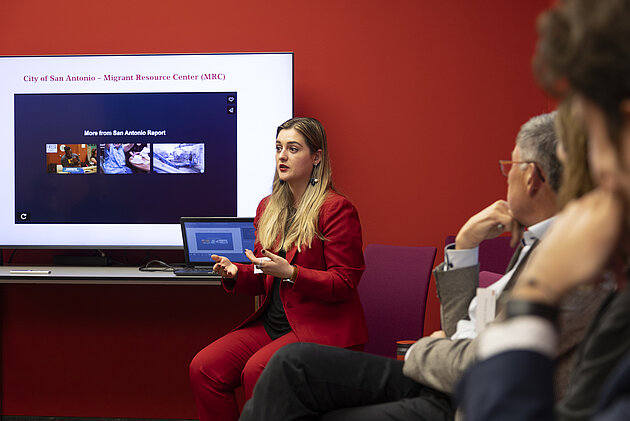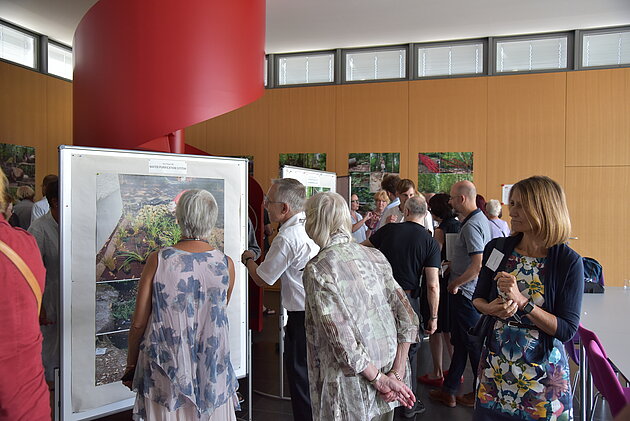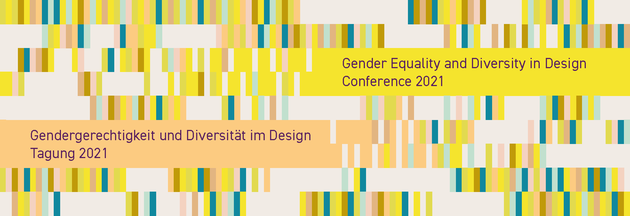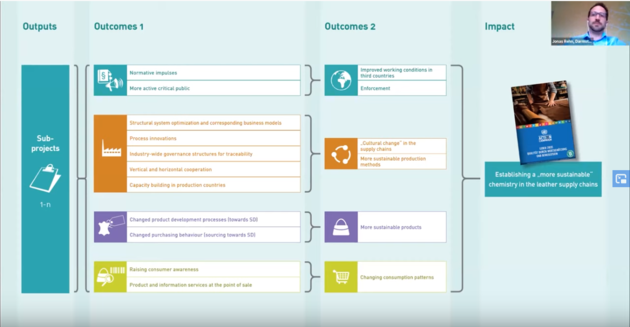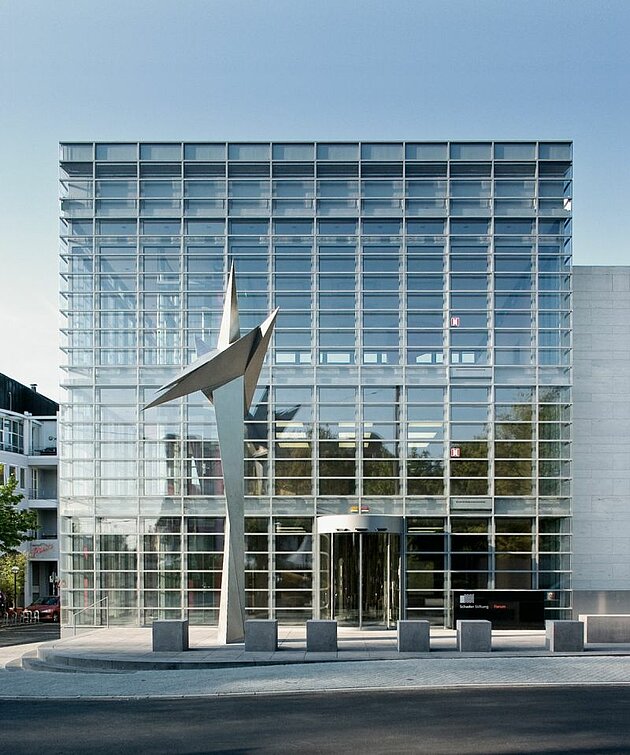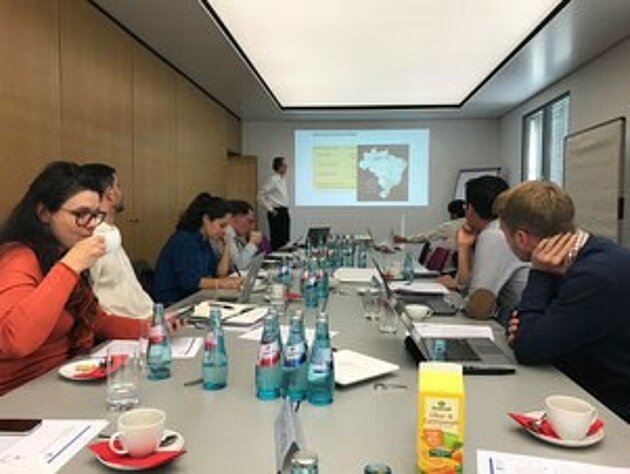Eine Diskussion zu Grenzen und Fehlern von KI. Sie macht Fehler. Chat GPT “halluziniert“, KI-Anwendungen diskriminieren bestimmte Bevölkerungsgruppen und autonome Automobile bauen noch immer Unfälle. Ist der Hype um KI überzogen, weil die KI zu viele Fehler macht? Wo liegen die Grenzen der Technologie?
AI makes mistakes. Chat GPT „hallucinates.“ AI applications discriminate against different groups of people, and autonomous cars still cause accidents. Is the hype around AI overblown because AI makes too many mistakes? What are the limits of this technology?
My First Großer Konvent: About the Challenges of Migration at the Local Level. A blog by Rocío Guenther.
Mehr erfahrenBeginning in 2018, the project more sustainable chemistry in the leather supply chains sought to bring together representatives along the leather supply chains, academia, NGOs and other actors, with the objective of fostering an intensive and constructive exchange towards a more sustainable leather chemistry.
Mehr erfahrenOnce again the Association for International Forest Art and the Schader-Foundation would like to welcome interested parties to the Forest Art Conference at Schader-Forum. The 9th International Forest Art Conference was part of the International Forest Art Path and offered artists the opportunity to reflect on their work and engage in meaningful discussion with scientists and practitioners.
Mehr erfahrenWe would like to inform you about our Infection protection concept, about events on the Schader campus and about our workplace.
Mehr erfahrenWith the conference, the Institute for Design Research at Darmstadt University of Applied Sciences and the Schader Foundation invited to an interdisciplinary discourse on the topic of "Gender Eqaulity and Diversity in Design".
Mehr erfahrenInternational Panel Discussion about Left- and Right-Wing Populism and Climate Change.
Mehr erfahrenThe 25,000 Euro research prize "Transformative Science" of the Wuppertal Institute and the Zempelin Foundation in the Donors' Association for the Promotion of Humanities and Sciences in Germany (Stifterverband) was awarded for the fourth time this year.
Mehr erfahrenThe project "More sustainable chemistry in the leather supply chains" enters into a new phase. Time to review the achievements thus far. An interview with Dr. Julian Schenten, Darmstadt University of Applied Science.
Mehr erfahrenOn the 29th of June, a workshop was held to discuss concrete projects regarding a transformation toward more sustainable practices in the leather supply chain with stakeholders.
Mehr erfahrenThe Schader-Stiftung is a charitable non-profit organisation located in Darmstadt. It finances its activities through the income earned on the assets that the benefactor and founder of the foundation, Alois M. Schader, donated to the foundation. The foundation was established in 1988.
Mehr erfahrenAlois M. Schader, born 1928, founded the Schader-Stiftung in 1988 as a non-profit foundation in Darmstadt, Hesse.
Mehr erfahrenThe Schader-Stiftung has been promoting social sciences for over 30 years by now. Its main concern is the support and strengthening of the practical relevance of social sciences and its dialogue with practitioners. It is for this purpose, that the foundation provides its premises in Darmstadt, the Schader-Forum.
Mehr erfahrenThe Schader-Forum (opened in 2010), along with the gallery and garden of Haus Schader, situated across the street, serves as the location for the various events held at the Schader-Stiftung. The utilization of the premises is an essential feature of any promotion by the foundation.
Mehr erfahrenThe Schader-Preis (Schader award) honours social scientists, who through their excellence in academia and within the public discourse, have contributed significantly to solutions for societal challenges.
Mehr erfahrenIn recent years, populist movements on both sides of the aisle have gained followers and, in some cases, power. Often, the issue of climate change is of particular importance in their rhetoric, whether it is to deny its existence or demand much more decisive action. Will climate change become the “issue of our time” that (re-)defines the future of liberal democracy?
Mehr erfahrenWhat can science contribute to transformation processes towards Sustainable Development? What can we recommend to future research and transfer projects in order to gain a better understanding of the problem situation and institutional design options providing adequate incentives as well as measures to successfully overcome impediments hindering the cooperation of field actors?
Mehr erfahrenAnnually, the Schader-Stiftung hosts the “Großer Konvent“ (main convention). The main convention allows a joint discussion among members of the foundations‘ committees and its trusted partners regarding the foundations’ thematic focus in the following year.
Mehr erfahrenAn inspiring workshop with young scholars and ESA professionals took place in October 2019 – concerning an universal subject: Moon Village. How to realize and maintain a manned station on the moon? How to solve problems beyond technology?
Mehr erfahrenThe shrinking city phenomenon is a multidimensional process, comprising cities, parts of cities or metropolitan areas that have experienced dramatic decline in their economic and social bases. An international comparative viewpoint is essential to the discussion since the urban phenomenon of shrinking can be perceived all over the world, albeit within different cultural and socio-economic settings.
Mehr erfahrenThe international and interdisciplinary research project “GreeTS: Green Transformations in the Global South” presented its findings on the implementation and driving forces behind the changes in energy and land-use policy in the Global South as well as its implications for industrialized countries at a public panel at the Schader-Forum in Darmstadt on the 17th of January 2019.
Mehr erfahrenOnly a few years ago, “shrinkage” was a political taboo in Europe and systematically disregarded as a dominant development trend in specific areas. This was also true for East Germany, despite the obvious development marked by a continued population loss and rising housing vacancies. “Shrinkage” was considered to be not policy compliant within the administrative system, traditionally oriented towards growth objectives. But the situation has changed significantly since the early 2000s. The term “shrinkage” resounded throughout the land, and today innumerable activities and events in Germany deal with the issue.
Mehr erfahrenProf. Dr. Michèle Knodt and Dr. Jörg Kemmerzell from the institute of political science at the Technische Universität Darmstadt will examine the Energy Governance in European countries within the context of European and international developments in a workshop. Therefore, the authors debate national trajectories of energy policy and examine the instruments, coordination mechanisms and adoption of external influences of national energy sectors.
Mehr erfahren
What is required for responsible research and innovation (RRI) in the field of Synthetic Biology? The Workshop discussed topics, questions, models and issues within four major themes: Value sensitive design, Conditions for Co-Responsibility, Responsible Representation as well as Monitoring and Regulation.
Mehr erfahrenThe international comparison of shrinking cities showed similar effects of shrinkage on cities as well as their local people, despite of different cultural and socio-economic settings. But which is a promising strategy to stop the process of shrinkage?
Mehr erfahrenWhile the technology of synthetic biology could solve pressing environmental and health issues, concerns about ecological, security or socio-economic risks were raised. The emergence of innovation and safety cultures is required to foster new opportunities and to responsibly govern potential transformations linked to emerging technologies. By Harald König, Daniel Frank and Reinhard Heil
Mehr erfahrenThere is a long history of area-based policies in Britain. Since the election of the New Labour Government in 1997, the scale of area-based initiatives has increased and they have taken on more of an anti-poverty focus. The government has set ambitious goals to eradicate child poverty and social exclusion, including improving conditions in the poorest neighbourhoods so that within 10-20 years no one should be disadvantaged by where they live. By Ruth Lupton and Ivan Turok
Mehr erfahrenDer Beitrag fasst die Themen des Vortrags „Die Vernetzung in Veranstaltungsräumen“ zusammen, den Dr. Lukas Zenk im Rahmen der Tagung „Dynamiken räumlicher Netzwerkstrukturen“ am 12. und 13. Juni 2014 im Schader-Forum Darmstadt hielt. Von Lukas Zenk, Michael Smuc und Florian Windhager
Mehr erfahrenInternationaler Workshop in Kooperation mit dem Jean Monnet Centre of Excellence „EU in Global Dialogue“ (CEDI)
Mehr erfahren

